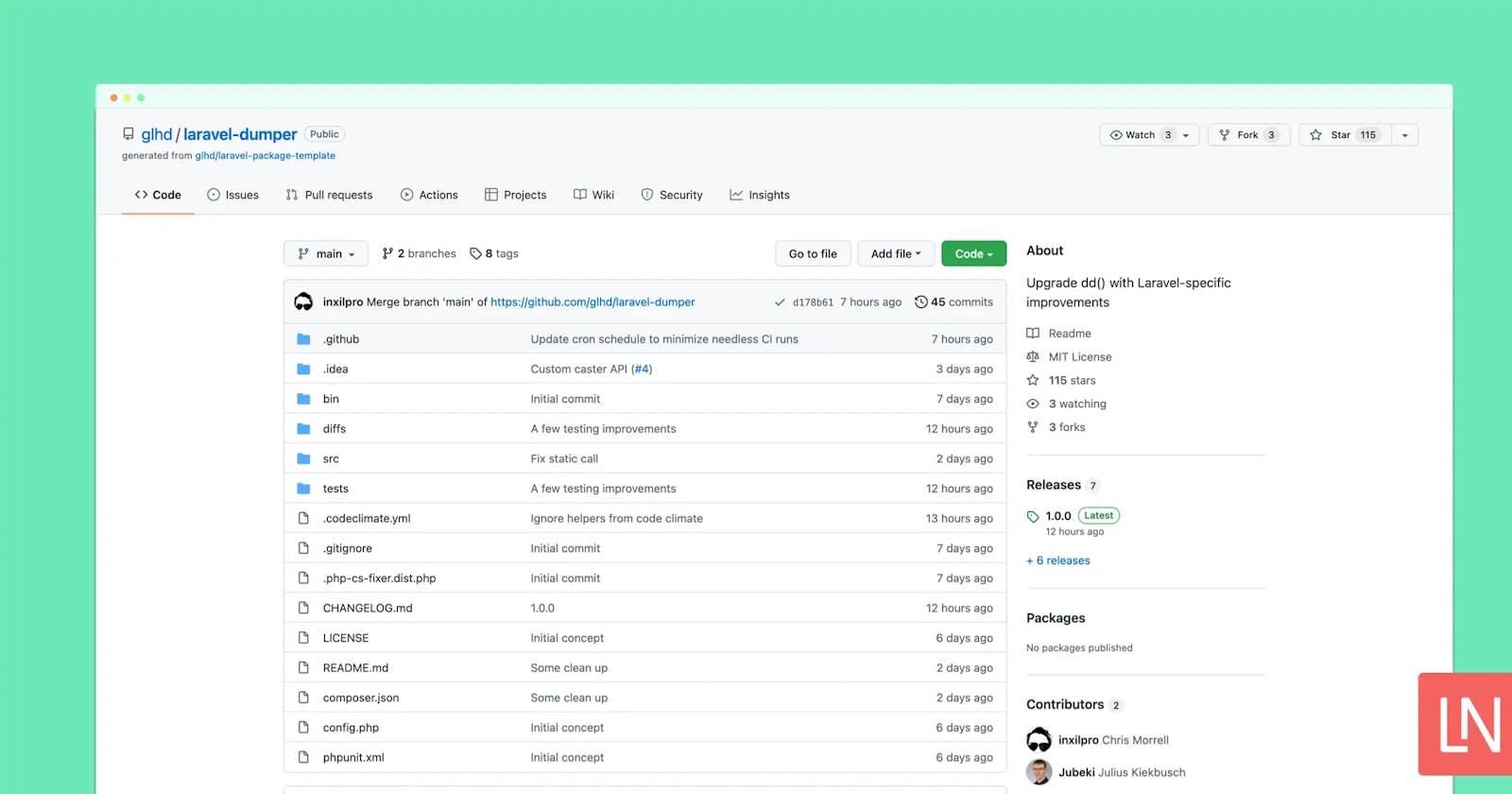The Laravel dumper package improves on the default dumper with useful Laravel-specific enhancements.
You’ll get helpful information for various core Laravel objects, such as:
Models
Query Builders
Service Container
Database Connections
Carbon Instances
Requests and Responses
Take this simple Post model query, for example, which conveniently outputs the query builder SQL query at the top:
Illuminate\Database\Eloquent\Builder {#332
sql: "select `title` from `posts` where `id` = '1'"
#connection: Illuminate\Database\MySqlConnection {#334 ▶}
#model: App\Models\Post {#320 …}
#eagerLoad: []
…5
}
You can expect enhanced output automatically wherever you typically use dd() and even get the experience with chaining dd() calls onto the query builder. For example:
Post::query()->select('title')->where('id', 1)->dd();
Would output something like the following:

If you still want to access the original default dump/dd behavior, you can use the following helper functions:
// f = full
ddf();
dumpf();
Custom Casters
If there are objects in your project that you would like to customize the dd() behavior for, you can register custom casters using the CustomCaster class:
use Glhd\LaravelDumper\Casters\CustomCaster;
CustomCaster::for(User::class)
->only(['attributes', 'exists', 'wasRecentlyCreated']) // Props to keep (or use `except` to exclude)
->virtual('admin', fn(User $user) => $user->isAdmin()) // Add virtual props
->filter() // Filter out empty/null props (accepts callback)
->reorder(['attributes', 'admin', '*']); // Adjust the order of props
The reorder method accepts an array of patterns. For example, the default Model caster uses the following ordering rules:
$order = [
'id',
'*_id',
'*',
'*_at',
'created_at',
'updated_at',
'deleted_at',
];
This ensures that id is always first, followed by all foreign keys, followed by all other attributes, and then finally followed by timestamp attributes (with deleted_at last). By applying bespoke ordering rules, you can make sure that the properties you usually need to debug are at the top of the dd() output.
Advanced Custom Casters
It's also possible to register your own casters for any class by publishing the laravel-dumper config file and registering your custom classes in the 'casters' section of the config. This gives you the same level of control over the dd() output as the core Symfony VarDumper package, but is more complex to implement.
Your custom casters should extend Glhd\LaravelDumper\Casters\Caster and implement the cast method. See any of our built-in casters for more details.
If you’d like to learn more about the difference between the default experience and the enhancements made by the dumper package, check out the Laravel Dumper diffs on GitHub.
